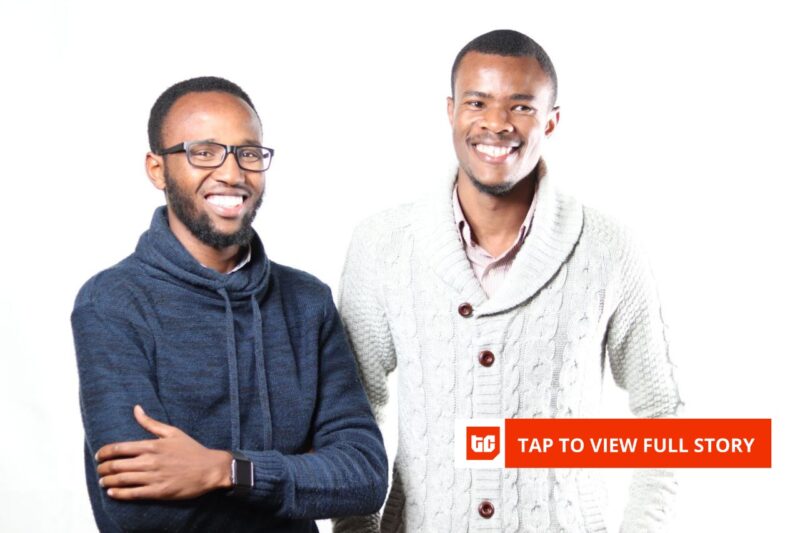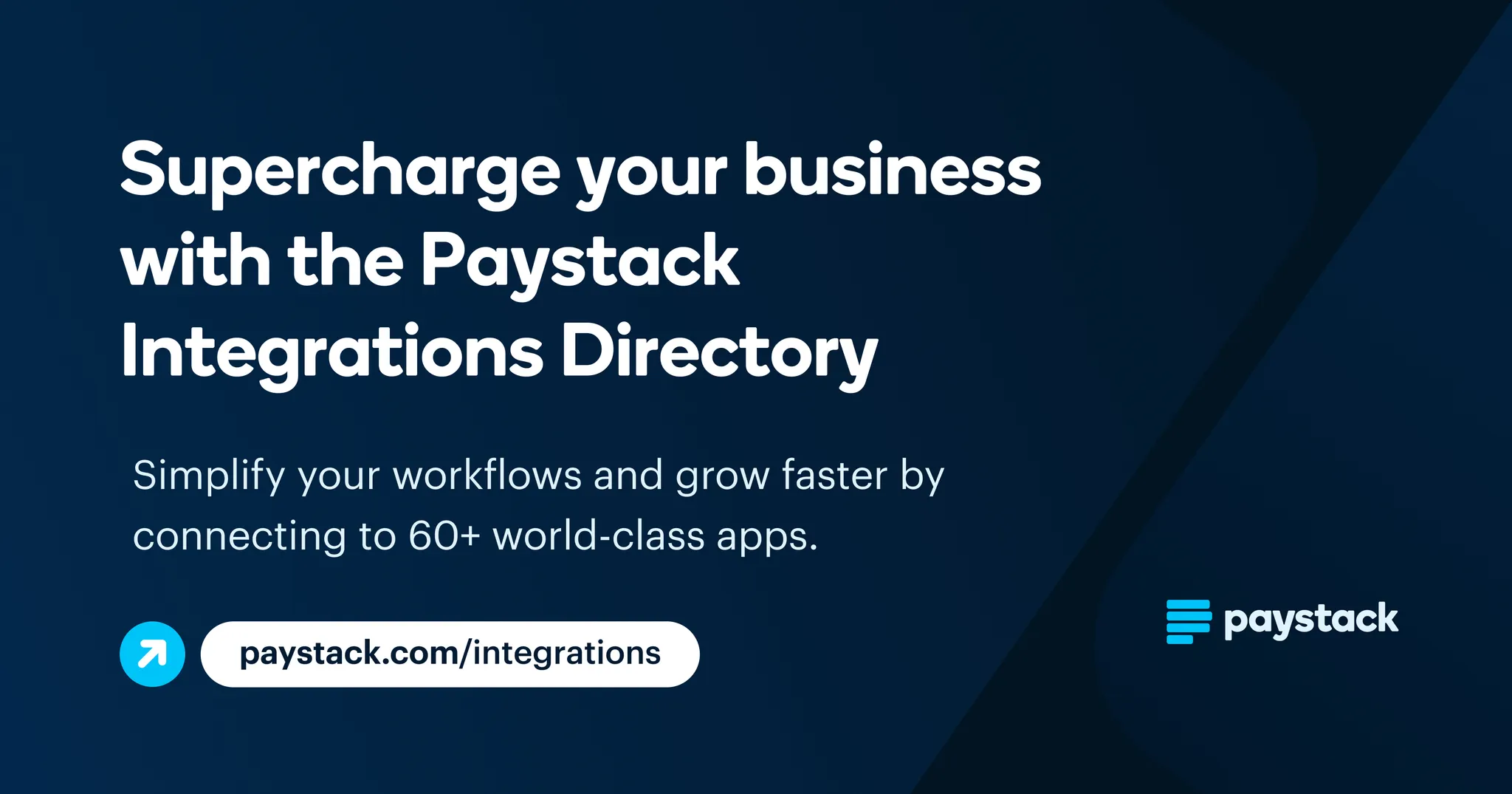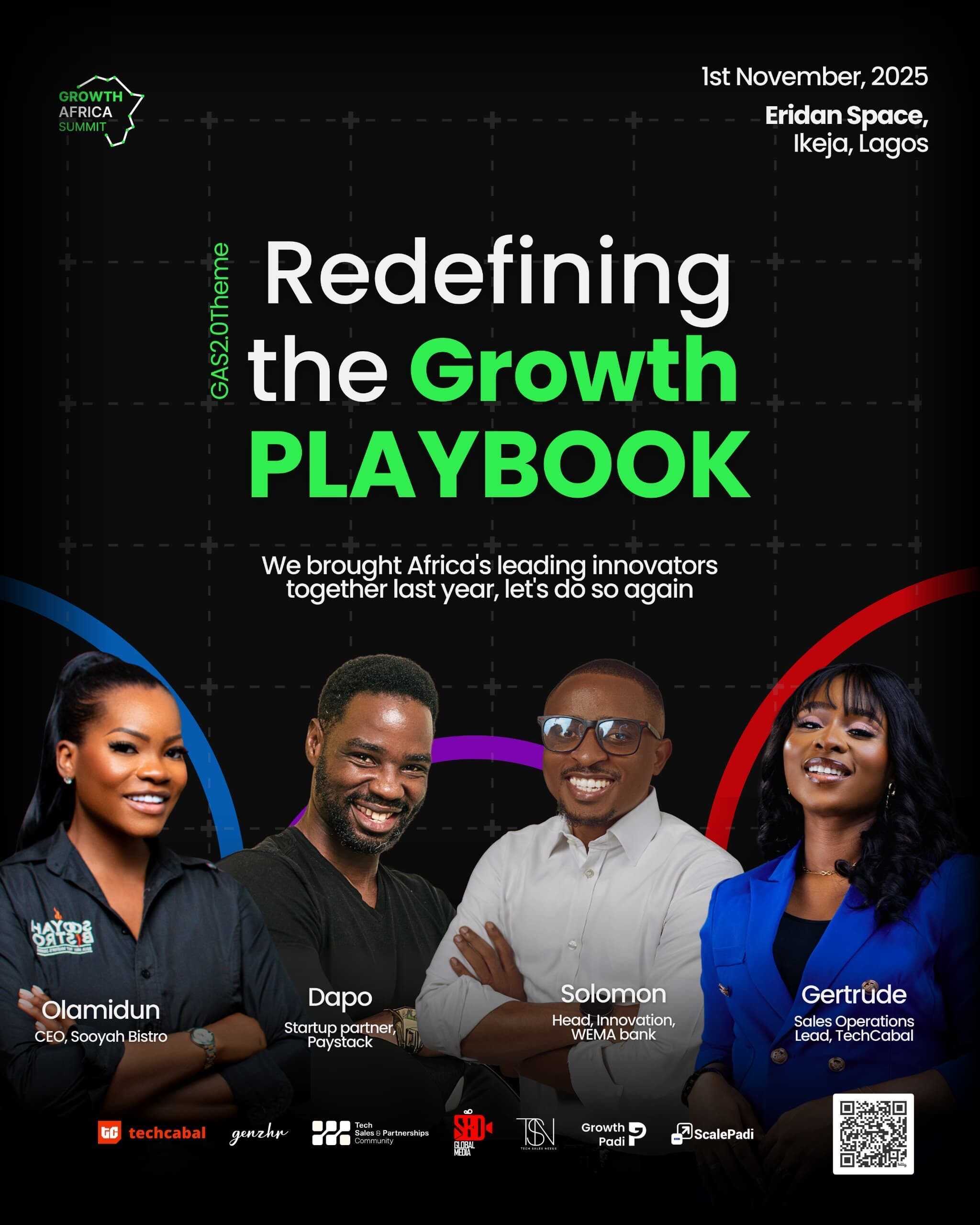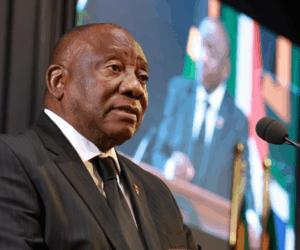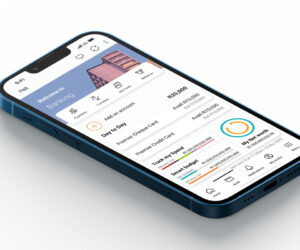

Happy pre-TGIF. 
Stablecoin adoption is rising across Francophone Africa as businesses and individuals turn to them for cross-border payments, dollar access, and faster transactions. This week’s edition of The Next Wave: Francophone Africa explores how stablecoins are being used, the regulatory challenges they face, and the startups driving adoption. Read it here.

Startups
Chpter co-founders jump ship, launch new startup
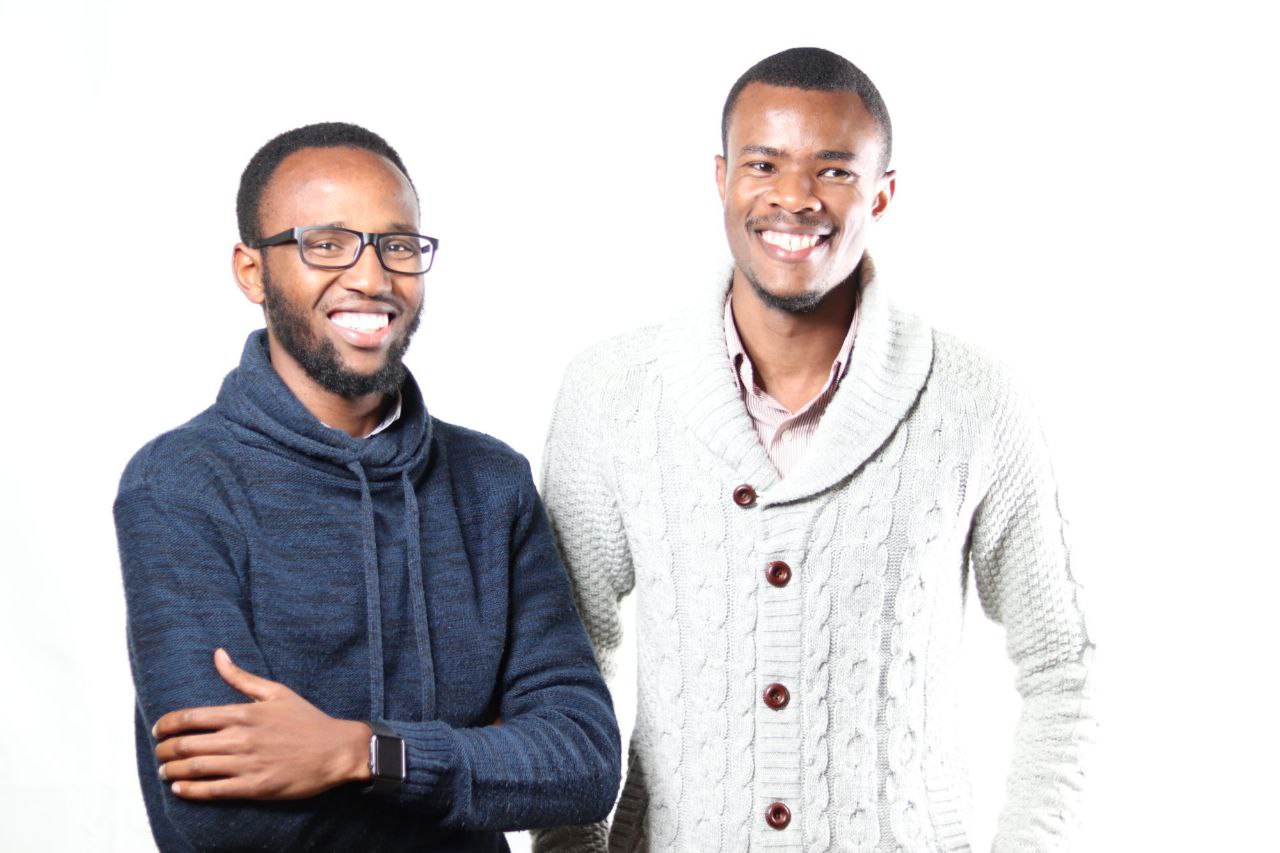
Tesh Mbaabu and Mesongo Sibuti have stepped down from their day-to-day role at Chpter, the Kenyan social commerce platform they joined last year to help scale. The leadership change puts the original co-founder, Mark Kiarie, back in the role of the chief executive officer (CEO). Yet, barely two weeks after, the duo announced their next act, a digital bank for young Africans, Cloud9.
The duo has been in constant motion. After shutting down the marketplace arm of their YC-backed B2B commerce startup, MarketForce, in 2024, they moved to Chpter to chase social commerce. Now, they’re ditching social commerce for fintech, one of Africa’s loudest and most competitive scenes.
Why fintech? It’s money. In Q1 2024, fintechs in Kenya secured $482 million in venture capital funding. The market value of the sector is expected to reach $14.54 billion by 2028.
Kenya’s fintech space is already crowded with players like M-Pesa, which serves more than 50 million active users in Kenya alone and owns over 90% market share in Kenya’s mobile money sector, and Airtel Money with 9% market share. Cloud9 bets that it will be the mobile-first, lifestyle-driven app for millennials and Gen Z who are underserved by traditional banks.
The pattern: Three startups within two years show that the founders have an appetite for reinvention. On one hand, it shows that they are unafraid to chase opportunities and throw themselves into fresh battles. On the other side of the coin, it questions how much consistency is too much. Today, it’s social commerce; tomorrow, it’s fintech. Next year, who knows? I guess we’ll wait and see.
eCommerce Without Borders: Get Paid Faster Worldwide
Whether you sell in Lagos or Nairobi, customers want local ways to pay. Let shoppers check out in their local currency, using cards, bank transfers, or mobile money. Set up seamless payments for your global online store with Fincra today.
Banking
Five Nigerian banks spent $86 million in H1 2025 to ramp up IT investments
This might not immediately come to mind, but banking and IT are like peas in a pod. Without the big shiny tech and IT infrastructure powering banking services such as deposits, transfers, and account management, your experience with banks will be worse than those glitches you experienced with GTBank last year. This is why Nigerian banks spend heavily on IT, through upgrades, maintenance, and continuous supervision.
Catch up: Five banks—Zenith, GTCO, Stanbic IBTC, UBA, and Wema—committed ₦126.8 billion ($86 million) to IT in H1 2025. Zenith led with nearly ₦50 billion ($34 million), more than double last year. GTCO followed with ₦37.8 billion ($26 million). Stanbic came in at ₦23.7 billion ($16 million). UBA held steady at ₦6.7 billion ($4.5 million), while Wema shocked the pack with ₦8.6 billion ($6 million), up from ₦1.1 billion ($741,000).
Between the lines: This spending surge reflects two races. One is for customer experience: transfers that clear instantly, ATMs that work without drama, apps that no longer collapse mid-payment. The other is for security. Nigerian banks lost ₦52.3 billion ($35 million) to fraud in 2024, almost triple 2023’s losses. Banks are now pouring money into defenses while fraudsters sharpen their tools with AI and cloud tricks.
Who wins in banks’ IT splurge? Two groups. First, tech service providers who install effective banking software and IT equipment, and second, customers who enjoy smoother apps, fintech-style speed, and safer transactions.
Banks, however, must swallow slimmer margins for now, with customers bracing for higher fees. Being multi-billion-naira businesses, we like to think the banks—the ones with healthy balance sheets—are fine.
The big picture: Fintechs have set the bar for speed and trust in payments. Nigerian banks are catching up by throwing billions at IT, betting that better tech could equal stronger loyalty.
Paga is in USA
Big news! Paga is now live in the United States, with digital banking services designed for Africa’s diaspora! Eligible users can send, pay, and bank in US Dollars & Naira, safe, regulated, and borderless. Learn more.
Economy
As AGOA closes, China steps in for Kenya
With the African Growth and Opportunity Act (AGOA) window now closed, China has moved quickly to position itself as Kenya’s next big trade partner.
At midnight on September 30, AGOA, the US trade pact that gave Kenya duty-free access to American markets, expired, leaving Kenya in search of a lifeline for its textile and apparel exports. China has now signalled that it is ready to step in with a sweeping zero-tariff offer that could cover all goods manufactured or produced in Kenya.
The numbers are in Kenya’s favour. In 2023, China was Kenya’s main import partner, with import values reaching $3.6 billion, while Kenya’s exports to China stood at over $206 million. With the zero-tariff agreement, these import and export values could surge.
What’s at stake? Kenya has leaned heavily on AGOA since 2000. Without it, factories risk losing their largest market and the economy risks losing hundreds of millions in annual earnings. Although the Trump administration has signalled support for a one-year extension of the act, this new deal with China might be Kenya’s best long-term bet to secure its exports.
What could China x Kenya birth? This new pact could reshape supply chains in Kenya. and draw investments into factories. It will reduce the country’s overdependence on the US market and even create new product lines for Chinese consumers. But will it replace the lost opportunities in the US market? That is yet to be seen.
Connect Paystack to the world’s best tools!
With the Paystack Integrations Directory, connect to 60+ powerful apps to streamline your business. Learn more here →
Telecoms
Seacom unveils plans for Seacom 2.0 subsea cable to go live by 2030
If banks run on IT, the internet itself runs on undersea cables. And one of the companies wiring Africa into the global web is Seacom, a pan-African ICT and telecoms provider best known for submarine broadband cables linking the continent to the rest of the world.
Catch up: Seacom has revealed details of its upcoming Seacom 2.0 cable, a 25,000km system designed to carry 2,000 terabits per second. Construction begins soon, with first connections expected by late 2029 or early 2030. The system will stretch from South Africa to Singapore, with a new westward loop landing in Lobito, Angola.
Unlike the first Seacom cable, which launched in 2009, the second will use optical space division multiplexing (OSDM) to pack in far more capacity, with up to 48 fibre pairs. In simple terms, Seacom aims to provide a superfast backbone for telecoms to extend to the last mile.
Between the lines: This ambition goes beyond faster Netflix streams or smoother WhatsApp calls. With AI workloads exploding and fintech, banking, and e-commerce demanding instant connections, Africa’s bandwidth appetite is surging. Seacom 2.0 wants to meet that demand before bottlenecks choke growth.
State of play: Seacom joins a wave of new infrastructure projects. Google’s Equiano and Umoja cables, Meta’s 2Africa and Project Waterworth are all adding staggering capacity around the continent. More landing stations also mean fewer disruptions when inevitable cable breaks happen.
The big picture: Africa’s digital economy depends on these invisible arteries under the sea. The bigger the pipes, the bigger the opportunity.
There Should Be An App For That 
As a Nigerian, I have partially accepted how unstable electricity is. But I can’t be having a long day at work, phone battery low, hoping there’s light at home, and I’m meeting darkness. A little warning would be appreciated.
There should be an app that tells you if there’s light at home or not. Bonus points if it alerts you about the national grid collapsing or any loadshedding activities. Of course, I should be able to load units through the app. This should be considered: green for light, grey for no light.
–Oreoluwa Roheemat
CRYPTO TRACKER
The World Wide Web3
Source:

|
Coin Name |
Current Value |
Day |
Month |
|---|---|---|---|
| $114,580 |
+ 0.52% |
+ 6.39% |
|
| $4,149 |
– 0.66% |
– 5.53% |
|
| $48 |
– 0.02% |
– 0.02% |
|
| $209.31 |
– 0.18% |
+ 5.67% |
* Data as of 06.30 AM WAT, October 2, 2025.
 Flash Sale: 25% Off Moonshot Tickets
Flash Sale: 25% Off Moonshot Tickets 
For a limited time only, you can save your seat at Africa’s biggest tech gathering with an exclusive 25% discount. On October 15 & 16, the Eko Convention Centre in Lagos will host founders, investors, policymakers, creatives, and operators shaping Africa’s innovation economy. Moonshot 2025 will feature deal rooms, investor lounges, immersive exhibitions, and the TC Startup Battlefield. Moonshot 2025 is designed for real connections and lasting impact. This offer ends soon.
 Secure 25% off your Moonshot ticket now. Get tickets.
Secure 25% off your Moonshot ticket now. Get tickets.
Events
- Entertainment Week Africa (EWA)—formerly Entertainment Week Lagos—returns to Lagos on November 18–23, 2025. Now a pan-African platform for the $58.4 billion creative economy, EWA has drawn 53,000+ attendees across film, music, fashion, and tech. This year’s edition introduces a dedicated film and music content market where artists, labels, directors, and publishers can pitch, licence, and sell directly to buyers and investors, supported by hands-on clinics to prep them for meetings. It will also feature a 50-company job fair, an expanded deal room accelerator with a ₦25 million seed fund, and more film premieres under the theme “Close the Gap.” Learn more here.
- The 10th FATE Business Conference takes place on September 26 in Lagos under the theme “AI-Powered Business: Innovate. Automate. Accelerate.” The conference will feature keynotes from Kofo Akinkugbe (SecureID) and Adedeji Olowe (Lendsqr), with panel discussions led by policymakers and business leaders including Olatunbosun Alake (Lagos State Government), Prof. Peter Adewale Obadare (Digital Encode), and Bode Abifarin (Strata). Expect practical insights on how AI is changing industries and powering business growth. Register here.
- Bigger, bolder, and more intentional. Following the resounding success of the inaugural summit in 2024, Growth Padi is thrilled to announce Growth Africa Summit 2025 (GAS 2.0) with the trailblazing theme: “Redefining the Growth Playbook.” Set against the backdrop of a fast-evolving entrepreneurial landscape, this year’s summit will challenge outdated strategies and usher in a new wave of radical, resilient, and relevant growth models tailored for African businesses. Register to attend by November 1.

Written by: Opeyemi Kareem and Emmanuel Nwosu
Edited by: Ganiu Oloruntade
Want more of TechCabal?
Sign up for our insightful newsletters on the business and economy of tech in Africa.
- The Next Wave: futuristic analysis of the business of tech in Africa.
- TC Scoops: breaking news from TechCabal
- TNW: Francophone Africa: insider insights and analysis of Francophone’s tech ecosystem
P:S If you’re often missing TC Daily in your inbox, check your Promotions folder and move any edition of TC Daily from “Promotions” to your “Main” or “Primary” folder and TC Daily will always come to you.

